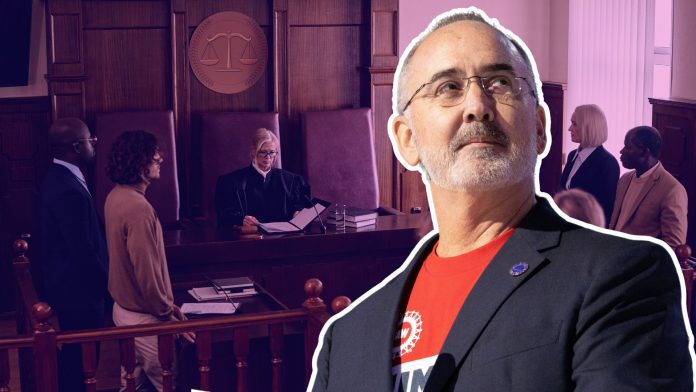This week, a federal judge ordered the United Auto Workers (UAW) to relinquish unredacted documents to the union’s independent monitor, Neil Barofsky, as part of an ongoing investigation into top union officials.
The decision, issued Monday by the U.S. District Court Judge David Lawson in Detroit, follows months of dispute between the UAW and Barofsky. The monitor has accused the union of intentionally stalling the investigation by withholding requested documents. According to Barosky, the delay hindered his ability to proceed with the inquiry.
While the UAW contends that it has already handed over millions of pages of information– 185,000 documents and 2 million pages in total–the court sided with the monitor, expressing that the volume of documents provided does not necessarily equate to completeness. Judge Lawson emphasized that further compliance is necessary to fully meet the requirements of the investigation.
However, the court’s order does come with some limitations. The UAW has received permission to temporarily withhold a limited number of sensitive documents, specifically those related to ongoing negotiations with employers. This action aims to protect confidential information until they can conduct a privilege review to ensure that sensitive materials, such as attorney-client communications, are adequately safeguarded.
Barofsky’s investigation into the UAW covers several egregious allegations, including claims of misconduct involving union leaders, such as UAW President Shawn Fain, Vice President Rich Boyer, and Secretary-Treasurer Margaret Mock. The investigation also delves into accusations of retaliation and financial mismanagement, including embezzlement by a regional direction using union funds. Boyer and Mock have already been stripped of their responsibilities amid these allegations, with both leaders facing ongoing internal appeals.
In response to the ruling, the union publicly approved the judge’s decisions, particularly the clarification regarding the protection of attorney-client privilege in collective bargaining discussions. Despite being the subject of investigation, UAW President Fain stressed the need to maintain confidentiality over bargaining strategies. With the UAW currently facing lawsuits from major automakers like Stellantis, Fain emphasized that safeguarding the union’s bargaining strategies is vital to protecting its members and abilities to negotiate effectively.



